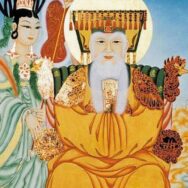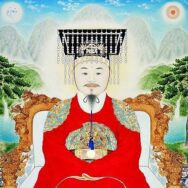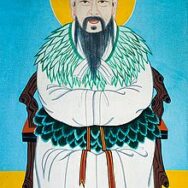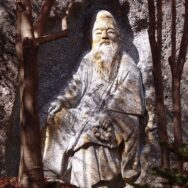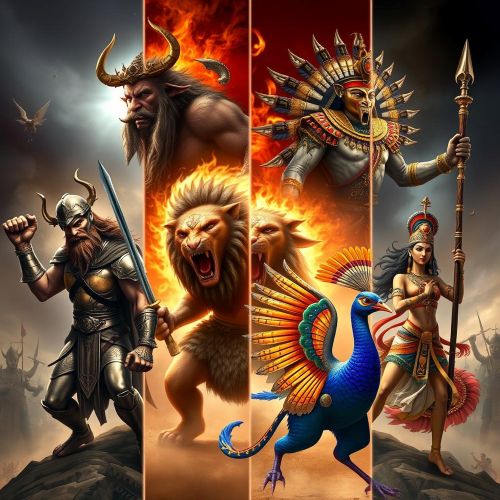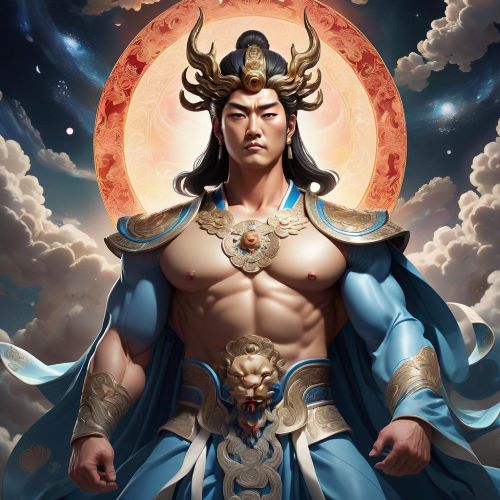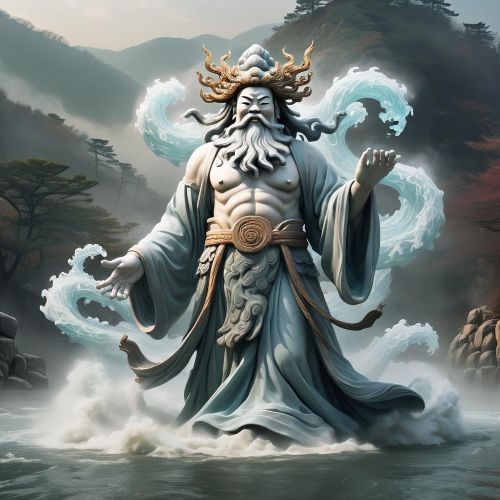Sang-Je: The Heavenly Father
Listen
At a glance
| Description | |
|---|---|
| Origin | Korean Mythology |
| Classification | Gods |
| Family Members | N/A |
| Region | South Korea |
| Associated With | Heaven |
Sang-Je or Haneullnim
Introduction
Sang-Je has many names, including the heavenly king and the god of Heaven. He is also referred to as the Korea’s version of Zeus or Odin. Hwan-in on Sang-Je, who was a god, transformed himself from the sky to the land of the shallow sea. There, he and hundreds of other people descended, claiming to be the descendants of Heuk-su and Baek-san.
Physical Traits
Sang -Je is usually depicted as a wise old man with a flowing beard.
Family
In Korean mythology, the three gods, Hwanin, Hwanng, and Dangun, are all interrelated concepts of divinity. The third god, Dangun, is the god of Earth.
The myth of Dangun begins with the request of Hwanin, the Korean nation’s creator and the son of Hwanin. Upon being sent to Earth, Hwanung was given three Heavenly Seals and was accompanied by thousands of followers. He is also the father of the other important deity Dagun.
Other Names
Sangje, Haneulnim or Haneul is the sky God of Jeunganism and Cheondoism, who is also known as Haneul or Haneul, is also called Haneul or Cheon. In the more Taoism-oriented parts of these religions, he refers to himself as Okhwang Sangje.
Powers and Abilities
Many of Sang-Je’s abilities are comparable to his counterparts in other mythology. They include Amenominakanushi,(Japanese), Indra (Indian) Jade Emperor (Chinese), Śakra (Buddhist), Tengri (Turko-Mongolian) and Thagyamin (Burmese-Buddhist). Sang-je is also considered to be a counterpart of the Jade Emperor, Yahweh, Jehovah, Allah and Yuanshi Tianzun.
Related Images
Frequently Asked Questions
Who is Sang Je in Korean mythology?
Sang Je is the supreme god in Korean mythology, often regarded as the creator of the universe and the ruler of heaven. He is associated with the sky, order, and the moral authority of the cosmos. Sang Je is considered the father of various deities in the Korean pantheon.
What are the key attributes of Sang Je?
Sang Je embodies qualities such as wisdom, justice, and omnipotence. He is often depicted as a benevolent figure who oversees the natural and spiritual worlds, ensuring harmony and balance. His authority extends over other gods and spirits in Korean mythology.
How is Sang Je worshipped in Korea?
Worship of Sang Je typically involves rituals and ceremonies conducted by shamans or during traditional festivals. Offerings and prayers are made to seek his blessings and guidance for prosperity and protection. His reverence is evident in various cultural practices and religious beliefs.
What role does Sang Je play in Korean creation myths?
In Korean creation myths, Sang Je is credited with the creation of the earth, sky, and all living beings. He is often depicted as having brought order out of chaos, establishing the foundations for human civilization. His actions set the stage for the emergence of other deities and mythical figures.
How does Sang Je compare to other deities in Korean mythology?
Sang Je is considered the highest deity, similar to figures like the Jade Emperor in Chinese mythology or Zeus in Greek mythology. While other deities serve specific functions within the pantheon, Sang Je represents overarching authority and creation. His position underscores the importance of hierarchy in Korean mythological traditions.
Source
Wikipedia: Sang Je – Wikipedia
Britannica: Sang Je | Korean Mythology – Britannica
“Korean Mythology: Tales from the Land of the Morning Calm” by Jim Ollhoff – ABDO Publishing
“The Origin of the Gods: A Psychoanalytic Study of Korean Creation Myths” by Susan F. Epstein – State University of New York Press
Journal of East Asian Studies: Articles on Sang Je – Cambridge University Press
“Korean Shamanism: The Cultural Paradox” by Chongho Kim – Routledge
“The Encyclopedia of Korean Folk Beliefs” by The National Folk Museum of Korea – Minsokwon
Asian Folklore Studies: Articles on Sang Je – Asian Folklore Studies
The Journal of Korean Religions: Articles on Sang Je – Yonsei University Press

